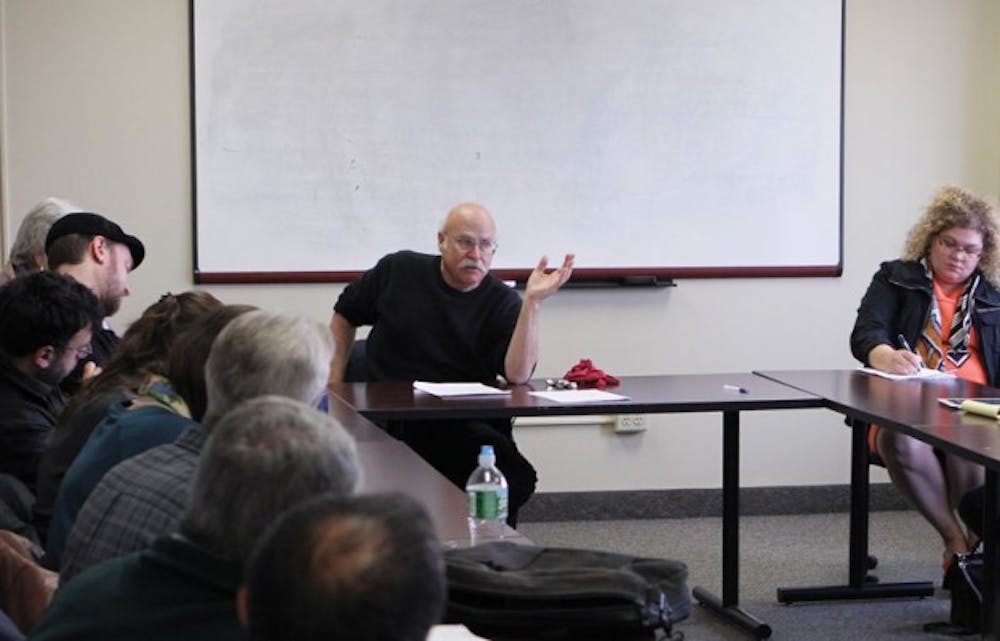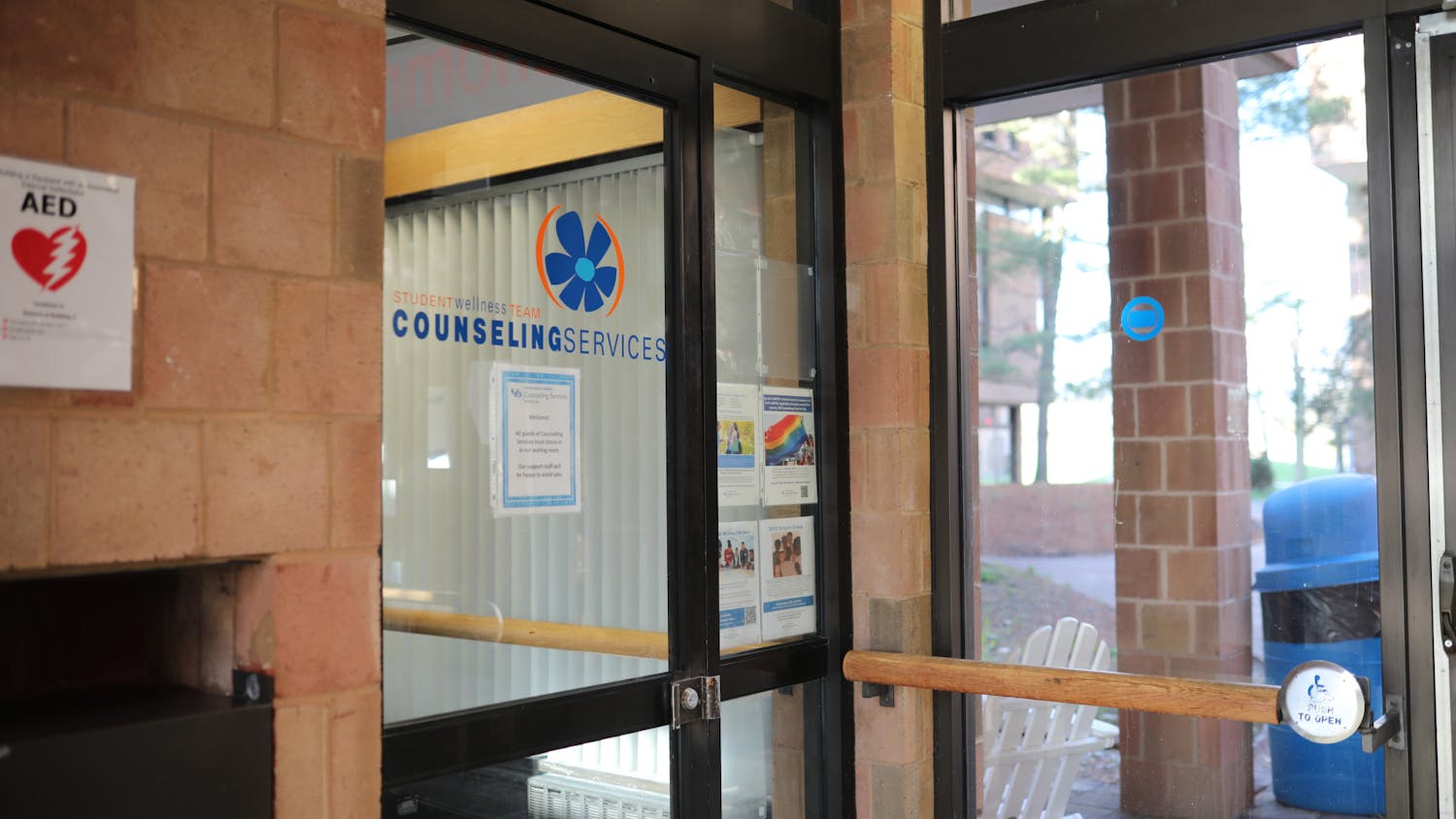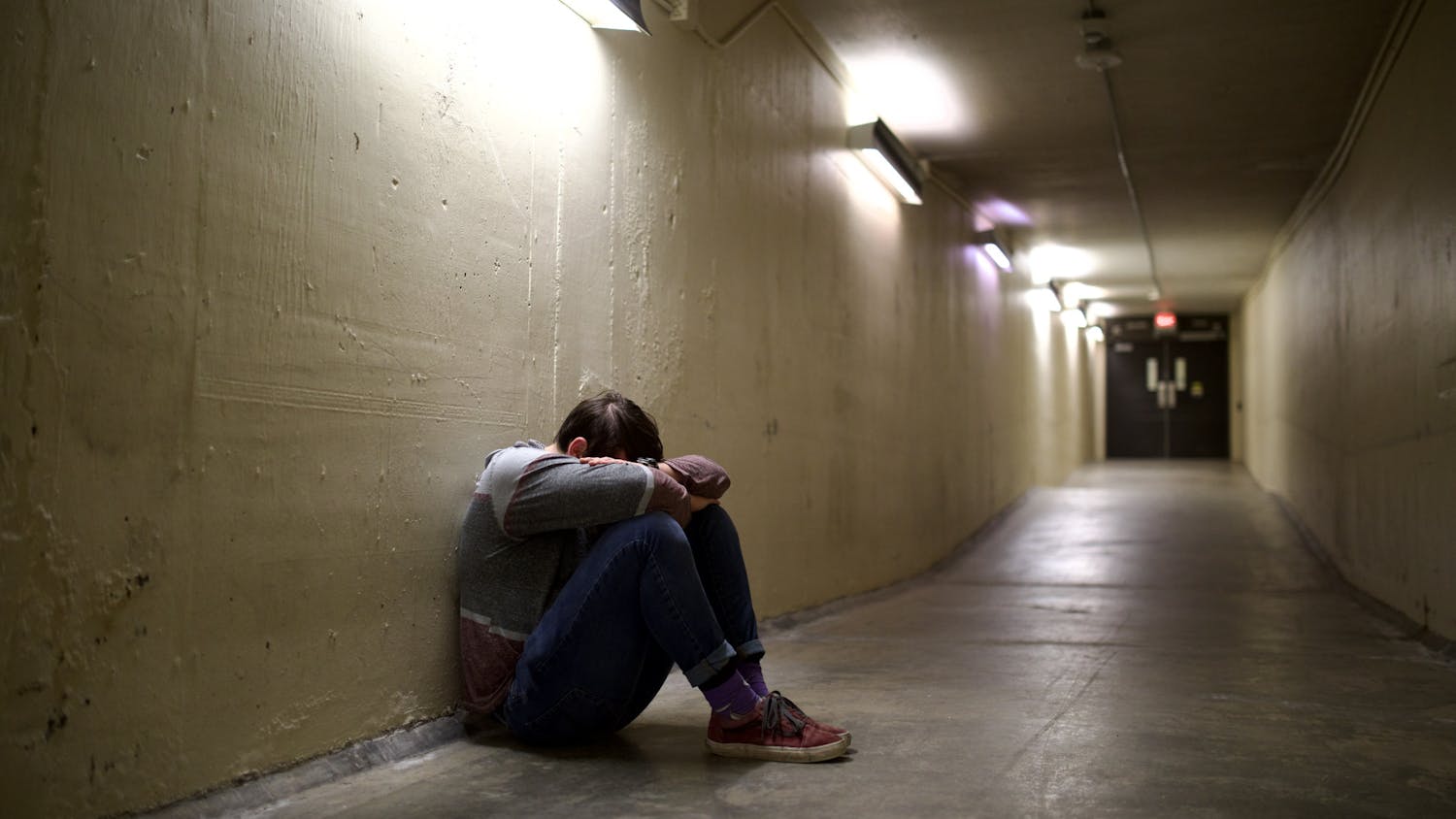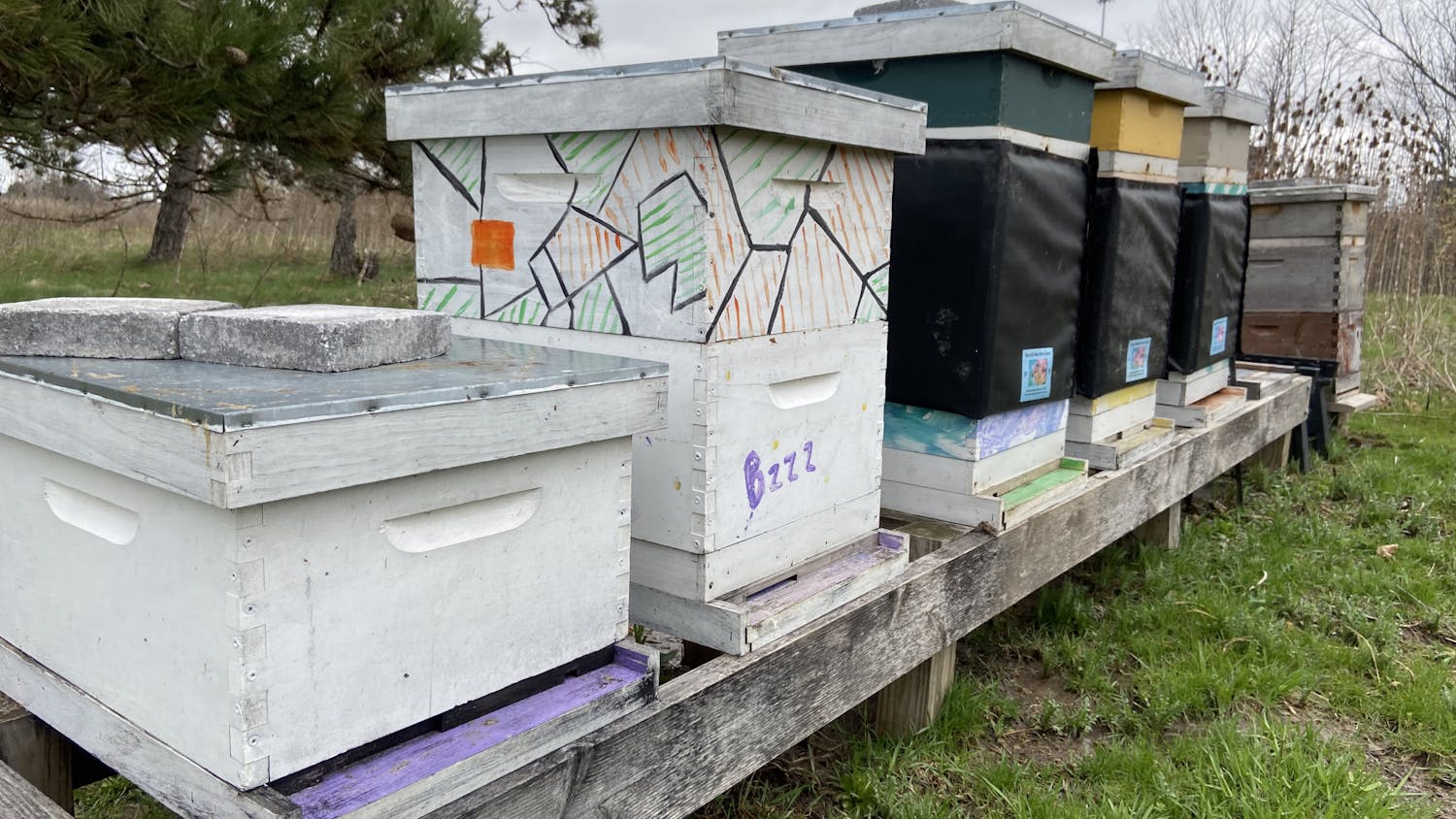Steven Shapin’s mom and grandmother would scrunch up their face, throw their hands in the air and say, “that doesn’t agree with me.”
Food either disagreeing or agreeing with someone is a concept that dates back to the second century physician Galen and is one of the catalysts for Shapin’s newest book.
Shapin, the Franklin L. Ford Research Professor of the History of Science at Harvard University, visited UB Monday, Oct. 6 and led a discussion session about his pre-circulated paper, “‘You are what you eat’: historical changes in ideas about food and identity,” and his upcoming book of – potentially – the same title, in Clemens 1032. A co-sponsorship of the Early Modern Research Workshop and the Science Studies Research Workshop, both funded by the UB Humanities Institute, sponsored the visit.
Before the discussion, Shapin sat down for an interview with The Spectrum.
“Food is a carrier wave for the whole of a culture,” Shapin said.
As he stepped into an elevator in Clemens, Shapin pulled a red bandana out of his pocket to use as a handkerchief – he got a cold while walking through St. Petersburg in Russia with just his black pinstriped blazer as a coat.
“I may be the last person in the world with a Hotmail account,” he said as checked an email from his wife.
Shapin has published six books, more than 30 articles and has written 10 essays for The New Yorker.
Leviathan and the Air-Pump: Hobbes, Boyle and the Experimental Life, which he co-wrote with Simon Schaffer, won the Erasmus Prize in 2005, conferred by HRH Prince of Orange of the Netherlands. He is a Fellow of the American Academy of Arts and Sciences and has won the J. D. Bernal Prize of the Society for Social Studies of Science, the Ludwik Fleck Prize of 4S and the Robert K. Merton Prize of the American Sociological Association (for A Social History of Truth), the Herbert Dingle Prize of the British Society for the History of Science (for The Scientific Revolution), a Guggenheim Fellowship and a Fellowship at the Center for Advanced Study in the Behavioral Sciences.
With such a vast history of publications, Shapin is unable to pinpoint exactly when food and identity became his current project.
“I’ll look at that thing I did 25 years ago and ask, ‘Hey, how’d that [topic] get there?’” Shapin said. “I’m not as organized as other people.”
Amy Graves Monroe, an associate professor of French at UB, who organized Shapin’s visit along with Hal Langfur, an associate professor of history at UB, said that Shapin was “a natural choice” because his research interests had a lot to do with those of the faculty and staff involved in the Early Modern and Science Studies Research workshops.
“Shapin is a leading scholar in the history of science,” said Graham Hammill, an English professor at UB, in an email. “I’m impressed to see how far his research has traveled, from early work on seventeenth century science and politics to, now, the history of taste – both as an abstract concept and as a material one, how things actually taste in your mouth.”
Despite his extensive list of accomplishments, Shapin’s demeanor feels surprisingly un-Ivy League – throughout the discussion, he pointed out his own lack of knowledge on certain topics and even told one attendee that he had a lot to learn from her. He was dressed in dark denim jeans and a black crew-neck sweater.
Although Shapin said he has been trying to think of a new title for the book, “You are what you eat” seems to be the best fit. Shapin’s book and the pre-circulated paper explore the relationship between food and identity, and how that relationship has changed over time.
Ricki-Lee Ritz, a senior French major, felt that Shapin addressed a “timely topic.”
“We take our diets so seriously,” Ritz said.
Shapin understands, perhaps more than anyone else, the implications food has on modern society.
Shapin said people get to know each other over food and coffee.
His research has delved into the two different meanings “you are what you eat” has taken over time – you are what you eat as in your body materially is made up of what you’ve taken in through your mouth and you are what you eat as in your identity is directly linked with your dietary choices.
“The paper was a fascinating study of the history of eating and how much food is at the heart of our sense of self,” Hammill said.
Graves Monroe agreed and said that the paper was “pretty darned brilliant.”
Up until the 18th century, the Galenic understanding of how food affects the body was widely known by doctors and the masses. Galen said that everything was made up of four elements – earth, air, water and fire – and each of those was associated with a quality – hot, cold, moist and dry.
People of a certain temperament needed to eat food that was made of the same qualities as they were.
“Dietic advice therefore focused on attending to the qualities of different things in individuals’ diet and advising them how, given their natural or innate constitution, they might achieve this balancing or rebalancing,” Shapin writes in the paper. “If you were naturally melancholic, you should tend towards the cold and dry, but if those qualities were becoming extreme, then you should adjust your diet towards foods that were warming and moistening.”
Shapin is also interested in researching what knowledge humans gain of the world through taste, something he said he has limited to just a small portion of the book. He wants to know why humans do not think of the sense of taste as a source of factual knowledge in the way that seeing or hearing is.
“You form your friendships based on similar tastes, not on factual knowledge,” Shapin said.
Yet, he said, connoisseurship – having a great deal of knowledge about a particular type of food, drink or art – is a type of knowledge that is dependent on taste.
“We don’t think of the tongue as a reliable organ,” Shapin said. “It’s a bit of philosophical trip.”
After Shapin gave a 45-minute presentation on his current interests, the floor was open to questions from the audience. Attendees wanted clarification on points he made, or pointed out areas Shapin may not have discussed in the paper, such as where breast milk fits into dietetic advice or how religious groups with dietary restrictions, such as Jews, lived under the idea of temperaments.
“I do think that this topic is of such broad appeal that one could see some stress on the transdisciplinary boundaries – that the conversation was one where people in different fields had to work to communicate with one another because their disciplinary assumptions (and their ideas of what is important on the topic) are different,” Graves Monroe said in an email. “And that's a good thing.”
Ritz appreciated the wide array of academic interests that were represented at the event. She enjoyed “seeing all these different minds in the same room.”
Shapin is set to finish the book by the spring, but he is taking a different route than most academics in publishing the book as a “trade book,” a book written for the general public and sold through book dealers, rather than using a university press.
“I want to write a smart book that is intended for more people than academics,” he said.
Shapin describes the book as “a story with lessons” about the history of food and identity.
With a topic as universally important as food, “You are what you eat,” if Shapin keeps the title, will lay bare the foundations for how modern society understands itself in terms of food.
But, the book is just as personal as it is societal.
“I open the book with, ‘I’m cooking dinner for my wife. What am I thinking about?’” Shapin said.
Next time you make a meal, consider what part of you is simmering on the stove, baking in the oven or defrosting in the fridge. It’s, as Shapin says, “the fabric of our lives.”
email: features@ubspectrum.com





